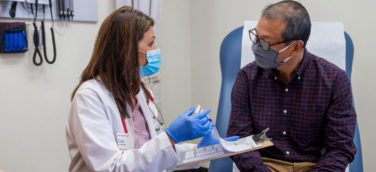Today there are more than 100,000 health and fitness related mobile apps available in the world’s top app stores. According to the Pew Internet & American Life Project Mobile Health 2012 survey, one-fifth of smartphone owners have downloaded an app specifically to track or manage their health.1 However, the user retention after 90 days for those apps dips to 30%.2 So, the question isn’t “Will the industry develop apps?” but rather, “Will they develop apps built for long-term use?”
For any app—whether practical or recreational—ensuring real-world user relevancy is the key to ongoing value and use. Current health-related apps don’t necessarily take into account the individual patient’s needs or lifestyle changes. For example, there are many apps for people with diabetes that aren’t designed by people who experience or fully understand the disease—leaving important considerations, like entering basal settings, or exact timing of their blood sugar reading, out of the equation.
By pairing a patient advocacy group that has patient behavior insights with a provider group looking to improve patient outcomes with specific treatment goals, it’s possible to move away from “one-size-fits-all” information to a personalized consumer experience that can help users master each day and the challenges faced—and, can keep patients engaged for the long run.
For example, WorldOne, a company focused on healthcare data collection, insights and intelligence, has teamed up with Joslin Diabetes Center, the world’s largest diabetes research and clinical care organization, to develop an online resource for diabetes healthcare professionals to read, discuss and interact on all things diabetes-related. Taking this concept and adding a few extra players from the personal health team—the patient, caregiver, and even health plans—could lead to the type of information sharing that can improve the quality of health management and answer clear market needs.
Pharma has important insights to contribute to this effort. With 76% of mHealth users taking a prescription medication,3 companies can be the catalyst to mobilize key stakeholders to improve an app’s stickiness and impact. Extending beyond simple scrip writing, we can become an active partner, along with physicians, in ongoing patient treatment by integrating medical tracking with personalized coaching around sticking with doctor-prescribed medication and lifestyle changes. Planned right, apps can educate and engage patients and healthcare providers and eventually build a stronger relationship with key target audiences.
Pharma needs to think about how they can leverage smartphones to develop differentiated packages of care around their products. They have to walk the fine line between providing a service to the patient population and having what they’re doing viewed as just a kind of marketing.
For us as an industry to be successful, we need the user experience to be more personal—a critical success factor to driving repeat use. This requires working collaboratively and openly with partners who can offer insider knowledge of the mobile industry, real-world patient insights and healthcare provider needs. Until that collaboration is actualized, mHealth and the apps expectations will fail to match their hype.
References:
1. http://pewinternet.org/Reports/2012/Mobile-Health/Key-Findings.aspx
2. http://blog.flurry.com/bid/90743/App-Engagement-The-Matrix-Reloaded
3. http://mhealthwatch.com/infographic-the-mhealth-revolution-21748/




